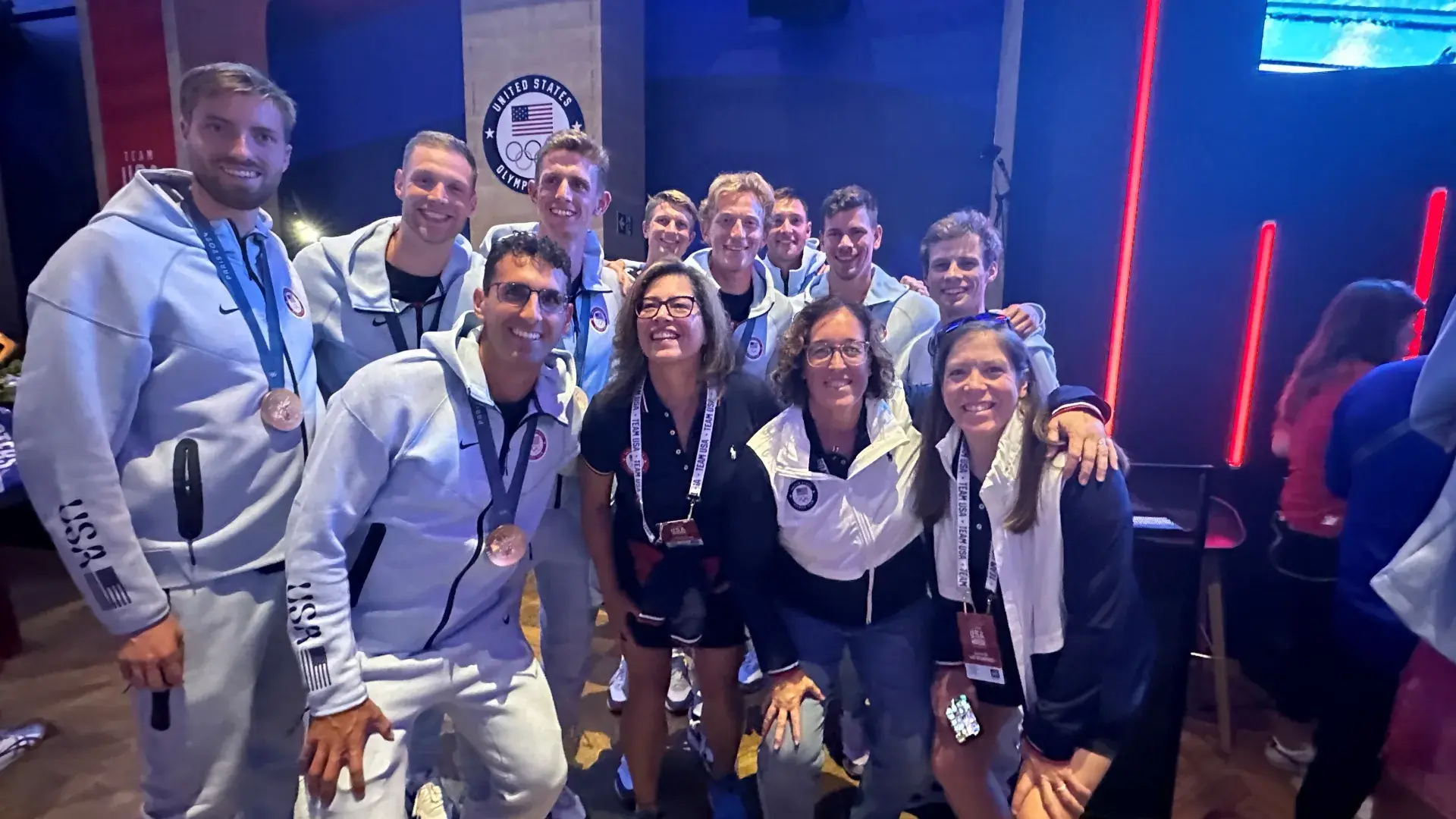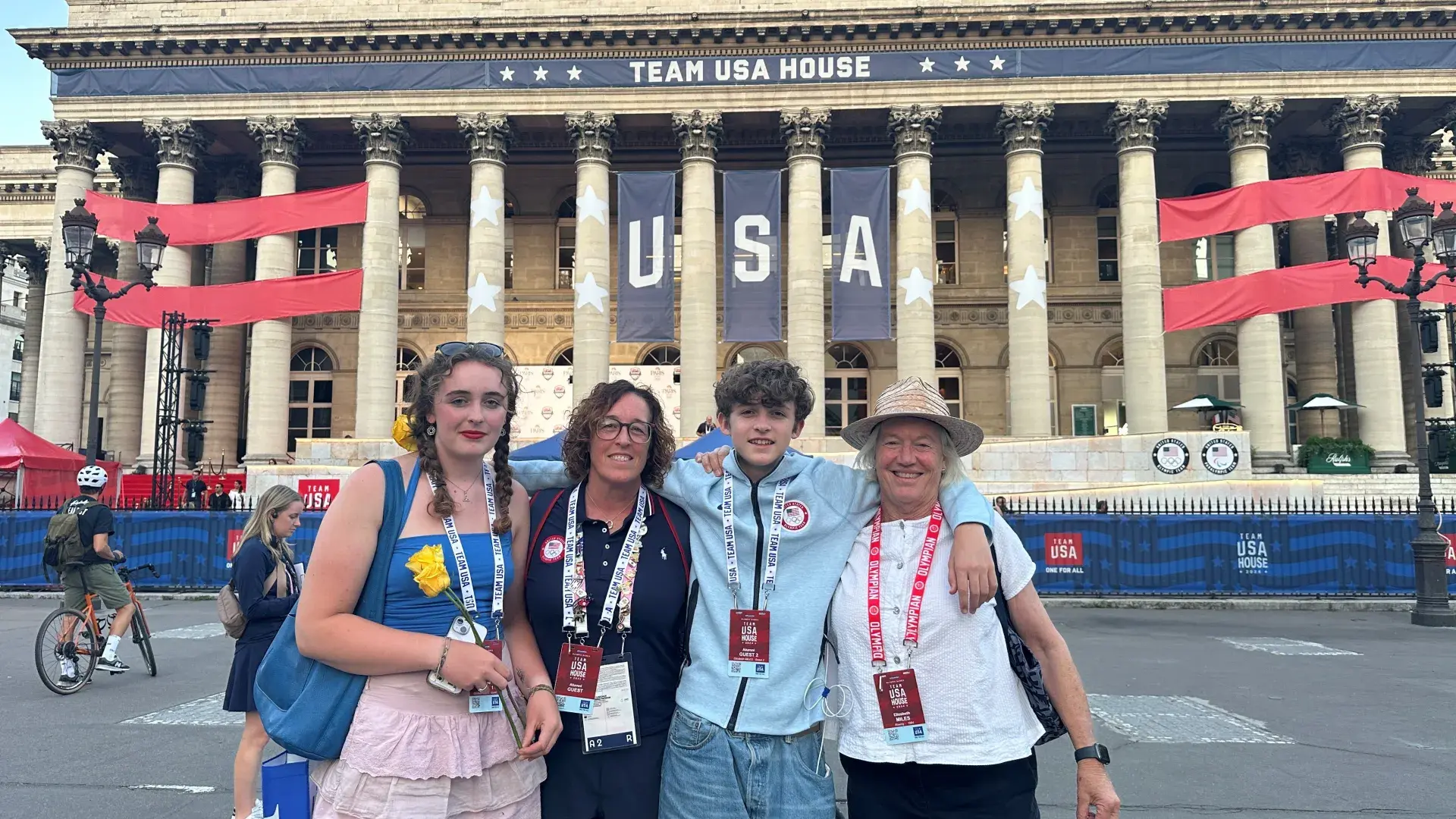
Physical Therapist for USRowing helped injured athletes compete; has advice for aspiring PTs who want to follow similar path
If there was one takeaway from the Paris Olympics for MGH Institute alum Deirdre McLoughlin, it was the sense of togetherness and unity.
“The Olympics were just amazing. The one thing about the Games that I wish everyone could experience is when you're in the village with all these athletes who are aiming for the same thing, it’s this microcosm of world peace, where everyone is really open in a way that we aren't in real life. Everyone is an equal and trying their best to get some sleep, eat, and do their sport. Everyone's cheering for each other. So, it's a wonderful experience.”
This experience for McLoughlin, DPT ’09, a physical therapist for USRowing, was her third Olympics and vastly different than the Covid restricted Tokyo Games that were held in 2021.
“You couldn't hug anyone or say hello to them back then, because if I got Covid from you, then I'm out,” recalled McLoughlin from her California home. “So, this just felt like a relief; it was really nice to be able to engage with people.”
Unlike Tokyo, when the U.S. didn’t medal for the first time ever, this Olympic team medaled twice; the Men’s 4 won the gold while the Men’s 8 took home the bronze.
“We knew that all the boats had some good speed, and those crews did well at the last regatta in Switzerland, so you know that they have potential to be in the mix and get a medal,” said McLoughlin on expectations before the medal races. “It's the Olympics, so it’s not expected. Everyone can be feeling good, but you don’t know what other countries are doing — if they were holding back in earlier races or peaking for the exactly the right time — so it all comes down to what our team does on race day, right?”
During races, the former collegiate rower admitted it was stressful watching from the PT tent where she was often working on other athletes who were getting ready to race.
“It's really hard to be a spectator,” observed McLoughlin, “especially when you care about the athletes.”
Most Team U.S.A. rowers arrived in Paris healthy, but two athletes had backs that were in tough shape. Fortunately, McLoughlin and her PT partner were able to work on them to the point where both athletes made the finals, and one even medaled.
“They did great, they raced, and I think did really well, so that is definitely a relief,” said McLoughlin. “When that athlete leaves the room and launches for the final, you're just like, ‘Whew! Okay, we did it.’ That's our job, and then the rest is up to them.”
The long days didn’t allow any time for site seeing or tourist stops; McLoughlin’s day began with a 6:30 am bus ride to Vaires-sur-Marne Nautical Stadium and didn’t end until 8:00 pm that night. The sights and sounds of Paris came for McLoughlin and her family when the competition ended.

